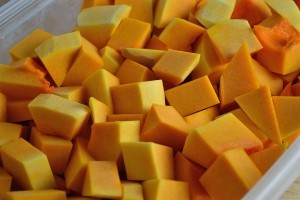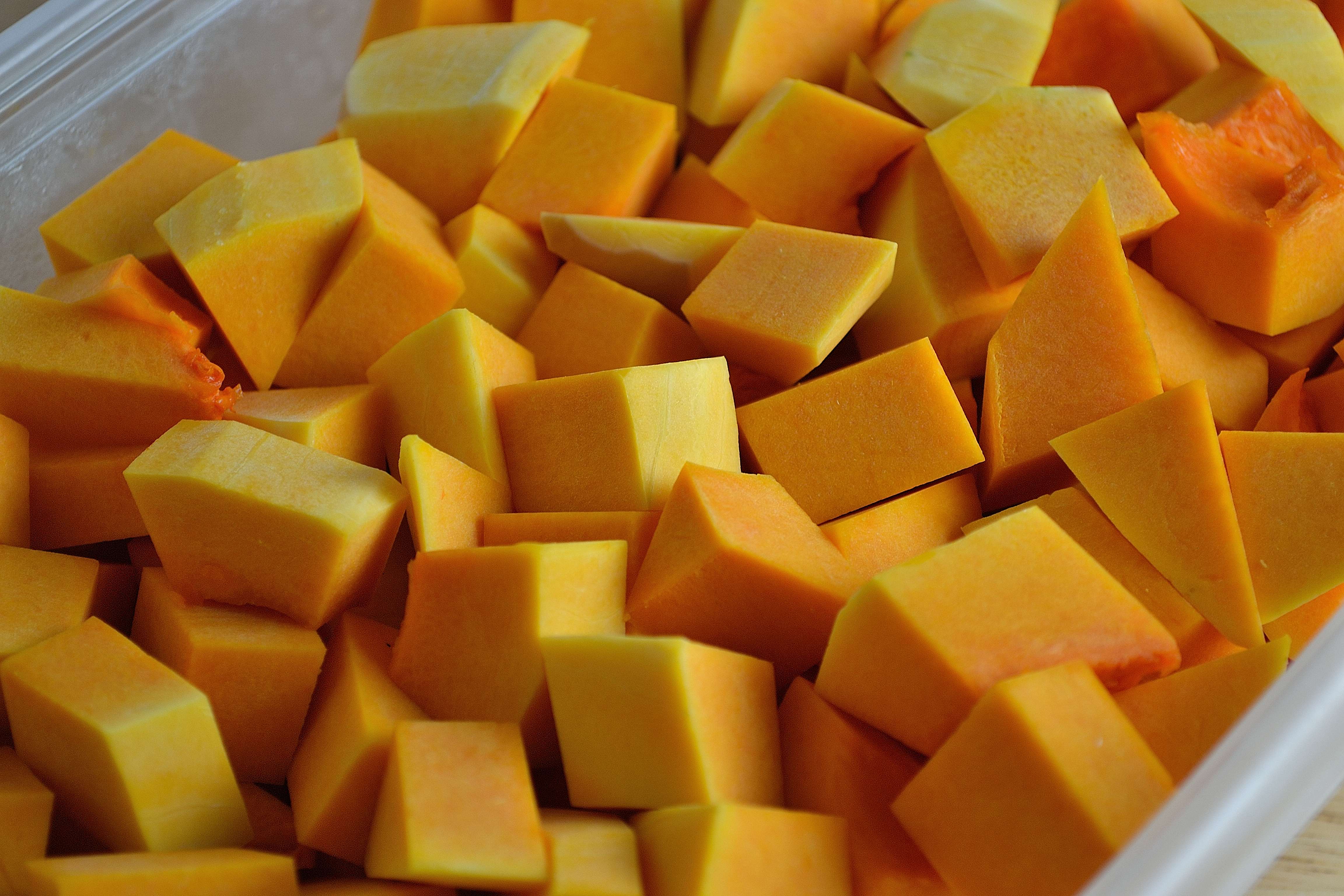
One of the benefits of butternut squash is its long shelf life, courtesy of its thick skin. While long storage times are known to impact nutritional quality in produce, in the case of butternut squash the carotenoids continue to accumulate for the first two months of storage. Certainly, the high levels of carotenoids like beta carotene in butternut squash deserve special mention.
If you're looking for a hearty vegetable that can be prepared without too much fuss, pick up a butternut squash the next time you're at the farmer's market. In season from October to February, this variety of winter squash can be picked out by its cream-colored skin and large pear shape.
When you cut it open, you'll see bright orange-colored flesh that is, as its color suggests, rich in carotenoids like beta-carotene, an antioxidant that turns into vitamin A in your body (just one cup of butternut squash provides 437 percent of your daily requirement).
Top Reasons to Eat Butternut Squash
Are you wondering what else butternut squash is good for? It contains an impressive amount of vitamin K1 (not K2), along with vitamin C, vitamin E, B vitamins, calcium, potassium, and magnesium. It even contains a respectable amount of plant-based omega-3 fats.
Certainly, the high levels of carotenoids like beta carotene …
Did you know butternut squash is actually a fruit? This is technically because it has seeds. Did you also know you can eat butternut squash raw perfectly safely? It’s better to eat fruit and veg raw if you can so they retain all their nutrients. Butternut squash can be a bit tough though so it’s pefect when blended up into a smoothie.
Butternut squash has such a vibrant orange colour which is an indicator of high levels of nutrients. Butternut squash is rich in beta-carotene which is good for preventing breast cancer and age-related macular degeneration.
Please Read this Article at Articles.Mercola.com
![]()





Leave a Reply